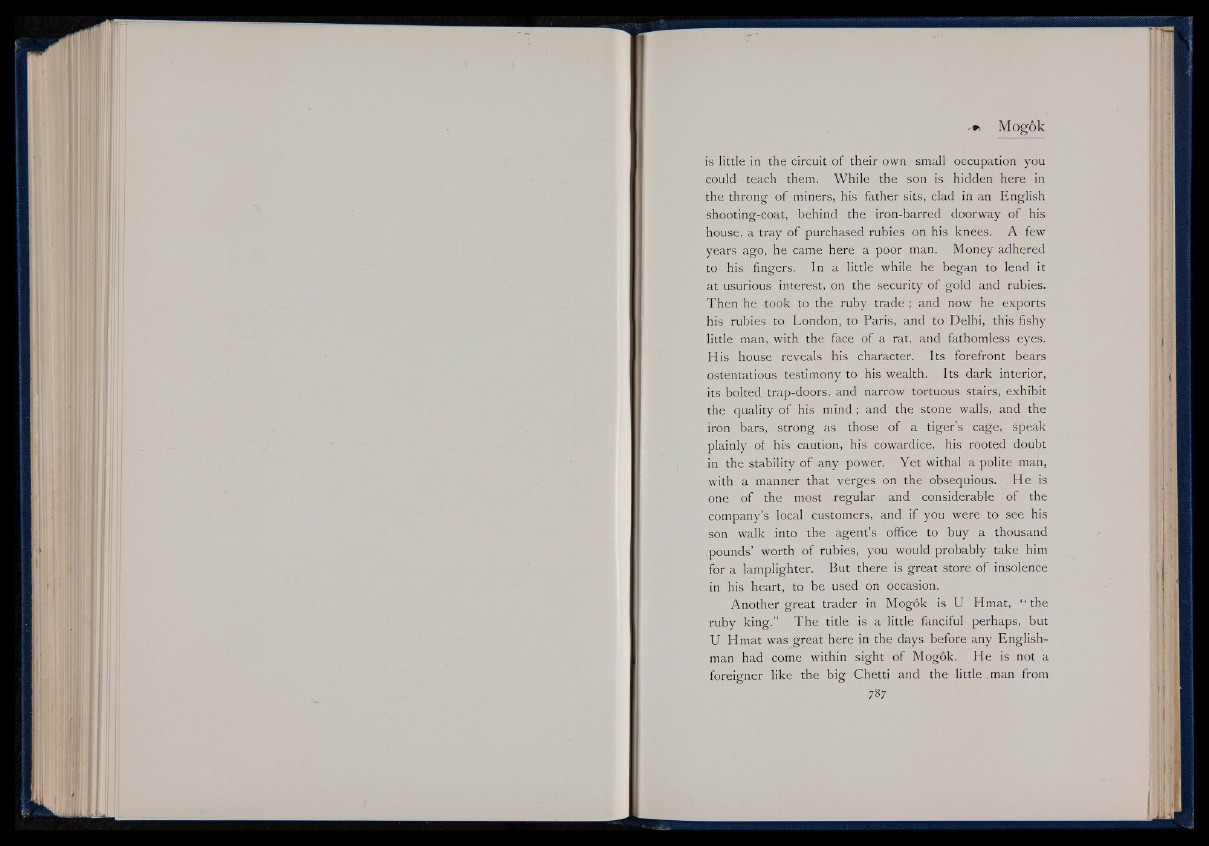
is little in the circuit of their own small occupation you
could - teach them. While the son is hidden here in
the throng of miners, his father sits, clad in an English
shooting-coat, behind the iron-barred doorway of his
house, a tray of purchased rubies on his knees. A few
years ago, he came here a poor man. Money adhered
to his fingers. In a little while he began to lend it
at usurious interest, on the security of gold and rubies.
Then he took to the ruby trade ; and now he exports
his rubies to London, to Paris, and to Delhi, this fishy
little man, with the face of a rat, and fathomless eyes.
His house reveals his character. Its forefront bears
ostentatious testimony to his wealth. Its dark interior,
its bolted trap-doors, and narrow tortuous stairs, exhibit
the quality of his mind; and the stone walls, and the
iron bars, strong as those of a tiger’s cage, speak
plainly of his caution, his cowardice, his rooted doubt
in the stability of any power. Yet withal a polite man,
with a manner that verges on the obsequious. He is
one of the most regular and considerable of the
company’s local customers, and if you were to see his
son walk into the agent’s office to buy a thousand
pounds’ worth of rubies, you would probably take him
for a lamplighter. But there is great store of insolence
in his heart, to be used on occasion.
Another great trader in Mogok is U Hmat, “ the
ruby king.” The title is a little fanciful perhaps, but
U Hmat was great here in the days before any Englishman
had come within sight of Mogdk. He is not a
foreigner like the big Chetti and the little , man from
787